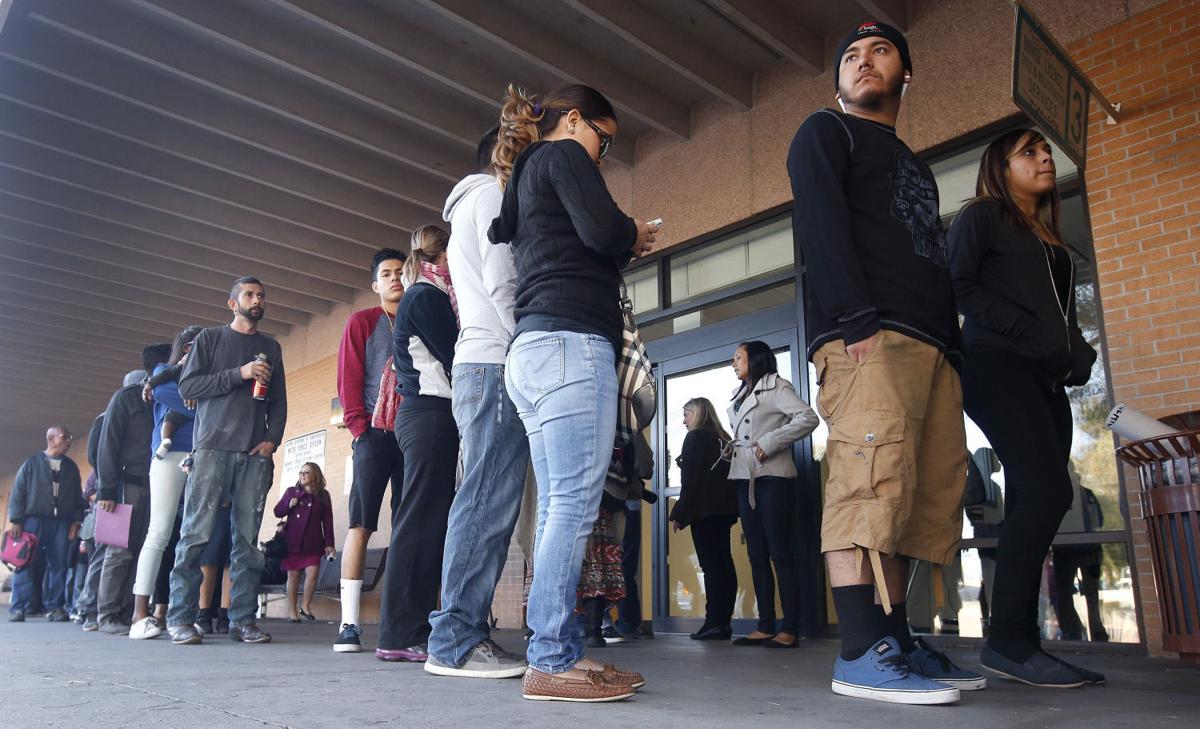PHOENIX — An attorney for the state asked a federal judge Friday to throw out a lawsuit by some “deferred-action” recipients who say they can’t get a license to drive.
Douglas Northup said there is nothing in state policy specifically denying licenses to those who fall into a certain category of people who are technically in the country illegally but whom the federal government has decided can stay. In fact, he argued, the Motor Vehicle Division will license those who can show they are protected by the federal Violence Against Women Act.
But Judge David Campbell pointed out that the MVD is requiring these people to produce documents that Arizona does not require of other deferred-action recipients. That includes “Dreamers,” whom he previously ruled are entitled to licenses.
He compared it to a city having two drinking fountains, one for Anglos and the other for Hispanics.
“Both can get water,” Campbell said. “But they’re being treated differently from everyone else.”
Attorney Victor Viramontes of the Mexican American Legal Defense and Education Fund said the legal problem is even deeper than that.
He said the MVD, acting under an executive order issued by former Gov. Jan Brewer that remains in place under Doug Ducey, her successor, does in fact have a policy against issuing licenses to these deferred-action recipients.
Viramontes said only when they sue in federal court does the state agree to provide a license — and only for that person.
He said that might help the five people who are plaintiffs in the lawsuit. But Viramontes said that unless Campbell issues a blanket order voiding the policy, the state will continue to act illegally, with potentially more than 1,000 people being denied licenses he said they are entitled to have.
The case is rooted in the 2012 decision by the Obama administration to allow those who arrived in this country illegally as children to remain if they meet certain qualifications. Those admitted into the Deferred Action for Childhood Arrivals (DACA) program also were issued federal Employment Authorization Documents.
Brewer issued an executive order denying licenses to DACA recipients, saying they are not qualified under a 1996 state law that makes licenses available only to those in the country whose presence is “authorized by federal law.” And she argued Obama’s order does not qualify.
But it turned out that, even after Brewer’s order, the MVD was still issuing licenses to those in other deferred-action programs who also had Employment Authorization Documents. That includes victims of domestic violence, those with pending visa applications and those allowed to stay for humanitarian reasons.
Challengers seized on that to say the state was violating constitutional prohibitions against unequal treatment. So the state, in an effort to undermine that argument, amended its policy to stop issuing licenses to some in other categories.
Campbell has since ruled that DACA recipients are in this country legally and the state is now issuing them licenses. This lawsuit deals with the others.
On Friday, Northup told Campbell the five plaintiffs have no case.
“They’ve been offered driver’s licenses,” he told the judge.
He conceded that other deferred-action recipients need show only their employment authorization form to prove they are here legally. By contrast, those in the C-14 immigration category have to prove something else, such as they got deferred-action status because they are covered by the Violence Against Women Act or because they are cooperating with law enforcement on some case.
Northup said that’s merely “an inconvenience.”
That led to Campbell’s questions about whether the state can legally make these people jump through the extra hoops.
But the judge also pointed out the state’s forms and instructions say those with C-14 status are not entitled to a license.
“Where can I find online I can get a license?” he asked Northup. And he got Northup to admit that he knows of no public statements made by the MVD that there is a way to get a license to drive.
Viramontes told Campbell that deferred-action recipients have actually gone to the MVD, only to be turned away.
“It is the policy,” he said. “It’s the only policy that’s in the record.”
And Viramontes said the MVD is trying to “pick off”’ the five plaintiffs in this lawsuit by essentially violating its own policy and giving them a license — a move that would leave challengers with no one left in the case to pursue the lawsuit. But he said the illegal policy remains.
“We do know if you get a lawyer and threaten MVD, you will get a driver’s license,” he said.





